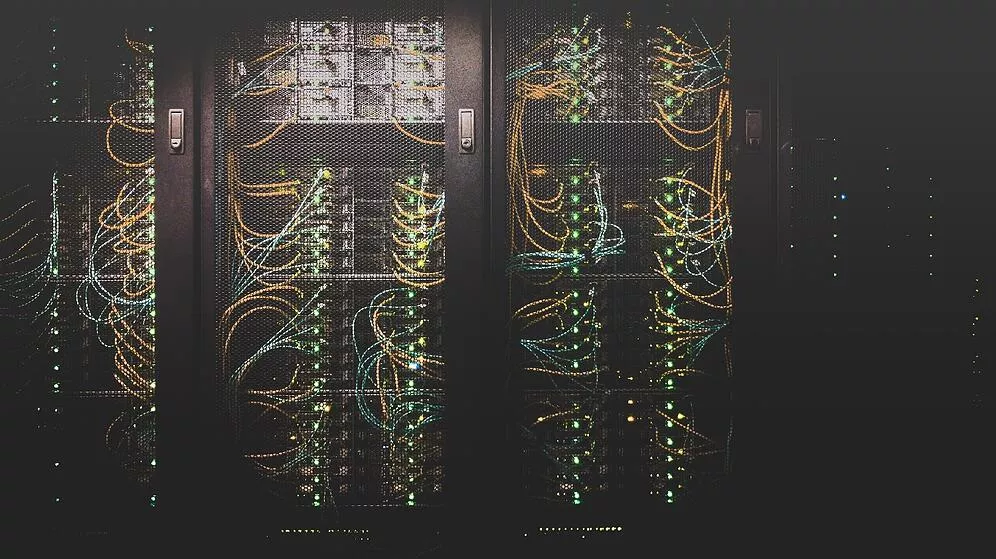
Article
How blockchain will disrupt the digital marketing landscape
With business moguls such as Elon Musk tweeting about Doge coin, cryptocurrencies continue to make headlines. Sure, everyone has heard about Bitcoin and Ethereum, but what few people know is how blockchain, the technology behind these digital coins, works and that in reality its application stretches far beyond that of digital currencies alone.
Many believe that blockchain will disrupt the current business landscape in the same way as the internet did a couple of decades ago, at an even more rapid pace. So, what exactly should you know about this technology and how will it impact marketing?
Blockchain will be everywhere
Looking at the previous examples, it is quite safe to assume that blockchain will transform entire business models in almost every industry. However, the impact it will have on the way we are doing business today remains largely unclear. Based on a number of key advantages that are provided by blockchain technology we can make some assumptions. Let’s take a look:
Advantage 1: Trust & transparency
Trust is one the most important cornerstones in the relationship between a consumer and a brand. In a digital context, without face-to-face contact, this can be especially hard to establish. Blockchain helps to improve customer relationships by providing transparency and increasing certainty. Every transaction made on the blockchain is registered and authorized by all the participants in the network, offering full transparency on all the transactions made in the database. On top of that, each transaction is linked to the previous one, which makes it possible to retrace any transaction to its origin.
Blockchain technology could help consumers to find out more about products they buy and the companies they buy from. For example, thanks to this technology you no longer have to question whether products were manufactured in an ethical way or if a company’s corporate social responsibility practices are genuine. Like Walmart, Carrefour partnered with Nestlé on a blockchain project to increase transparency in its supply chain. By scanning a QR code on the package, customers are able to follow the whole process from farm to table for Nestlé’s instant mashed potato product “Mousline”. Carrefour is certainly not the only retailer that makes good use of the technology. Aldi, for example, launched the ALDI Transparency code (ATC) in 2019, allowing consumers to scan every meat product. Within seconds you get full transparency about the origin of the product including which (part of) animal the type that has been used.
The traceability of the supply chain will not only force producers to be genuine and transparent, but it can also enhance food safety. Scandals in the food industry such as the fipronil crisis or swine fever, could be detected or prevented more easily.
Of course, the information stored in blocks is not limited to supply information. It could also be financial transactions, customer data, medical data, contracts, etc. Basically, anything that can be of value could be stored in blocks. In the healthcare sector, start-up Labchain uses blockchain to digitally connect hospitals. By putting patient’s medical data on the blockchain, the data can be transferred to another hospital in a fraction of a second, safely and without errors while maintaining confidentiality. Another example can be found at Accenture that builds blockchain solutions for its insurance clients. They translate key insurance processes into blockchain-ready procedures and smart contracts that embed trust.
These examples extrapolated to other industries, could enable greater transparency in the origin of goods and attest to their authenticity. Think of countering counterfeit goods, preserving intellectual property and tracking claims such as fair-trade or halal. The application range is tremendous.
Advantage 2: Click fraud & security
Blockchain can provide an additional layer of security that is very welcome in an online marketing landscape characterized by click fraud, identity theft and the likes, draining not only advertising budget but also damaging a brand’s reputation. Due to blockchain’s inherently transparent nature, advertisers, search engines and other stakeholders will be more likely to operate with honesty and integrity when using the technology.
Moreover, decentralization and distributed data storage provides the backdrop for a new technological infrastructure that benefits both brands and consumers. Every transaction is encrypted and linked to the previous transaction meaning that once it’s formed you cannot change it, making it hard to hack. Today every like on Instagram, Google search or online purchase is recorded. By eliminating third parties, consumers can regain control over their data, making them less vulnerable for identity theft or credit card fraud while also driving down the cost of transactions.
Advantage 3: Privacy (GDPR)
Privacy has been a hot topic for marketers in recent years. Incidents such as the US election fraud in 2016 are still fresh in our minds, making people increasingly aware of the importance of their data privacy and its use. No matter where you browse, it seems everyone wants to have your name, email address, phone number and even the brand of your first car or your mother’s maiden name. One of the most exciting benefits blockchain provides is giving back the power to the people. Today companies pay third parties such as Google and Facebook to get insight into customer data. For consumers it is not always clear what happens with their data and who has access to it. By storing it on a blockchain and eliminating intermediaries, it becomes more transparent, and consumers decide who they give access.
For brands this will change the way they advertise and generate leads as it will become increasingly difficult to collect data. Conversely, blockchain technology allows companies to go straight to consumers for data collection increasing the accuracy and thus creating more qualitative leads at a lower cost (Google and Facebook would no longer be needed).
Advantage 4: Loyalty programs
Brands can also incentivize sharing information through loyalty programs. Incentives can take the form of loyalty points, discounts, cryptocurrencies or coins created by the brand. Again, strengthening the customer relationship while improving data quality and richness. Brave browser, for example, rewards users for watching ads with their own “frequent flyer like” token BAT. Every time a user watches an ad this is counted as a transaction on the blockchain for which they are rewarded.
Recently Burger King partnered with Robin Hood to reward customers with cryptocurrencies including Bitcoin and Ethereum, as part of their “Royal Perks” loyalty program. For every $5 spent, registered ‘royal perks’ customers had a chance at winning a crypto coin. This is a clear example of how brands can reward loyalty program participation and information sharing, allowing them to tailor their marketing efforts. By targeting highly engaged customers, your marketing budget can be allocated more effectively.

The potentials downsides to blockchain
Besides the substantial number of advantages, there are also a number of potential drawbacks. The disruptive nature of this new technology could possibly mean the downfall of a generation of (digital marketing) companies that were built on the exact needs that blockchain technology fulfills. But we could also see disadvantages related to personal responsibility and environmental impact.
One thing is sure, the real impact of blockchain in marketing is not limited to new use cases or applications. It is set to disrupt entire existing systems and industries. Digital marketers can tap into the potential by strengthening customer relationships, using increased transparency and security to their advantage, and getting access to more qualitative data.
Do you want to continue to learn, spot opportunities within your industry, identify customer demand and benefits, or future-proof your organization? Get in touch with Data Transformation Expert David Vansteenbrugge